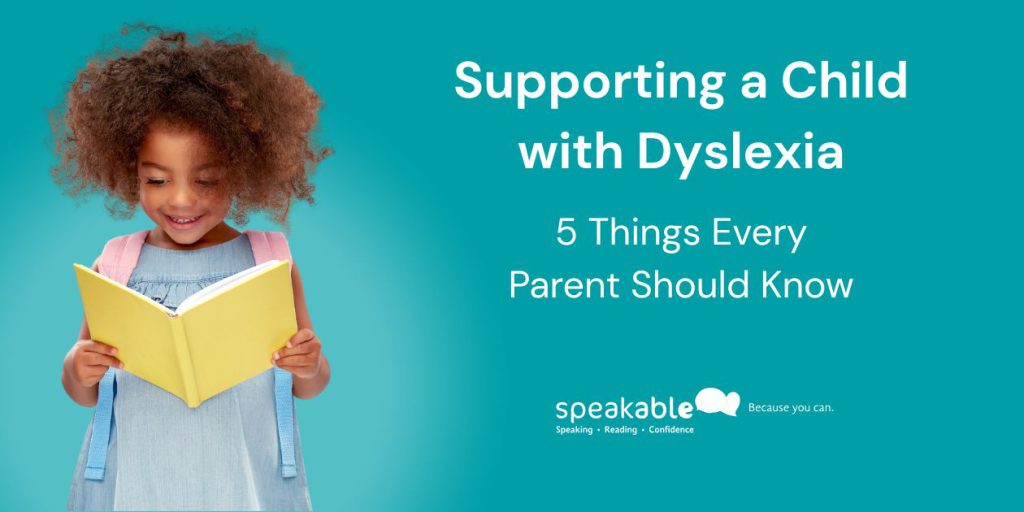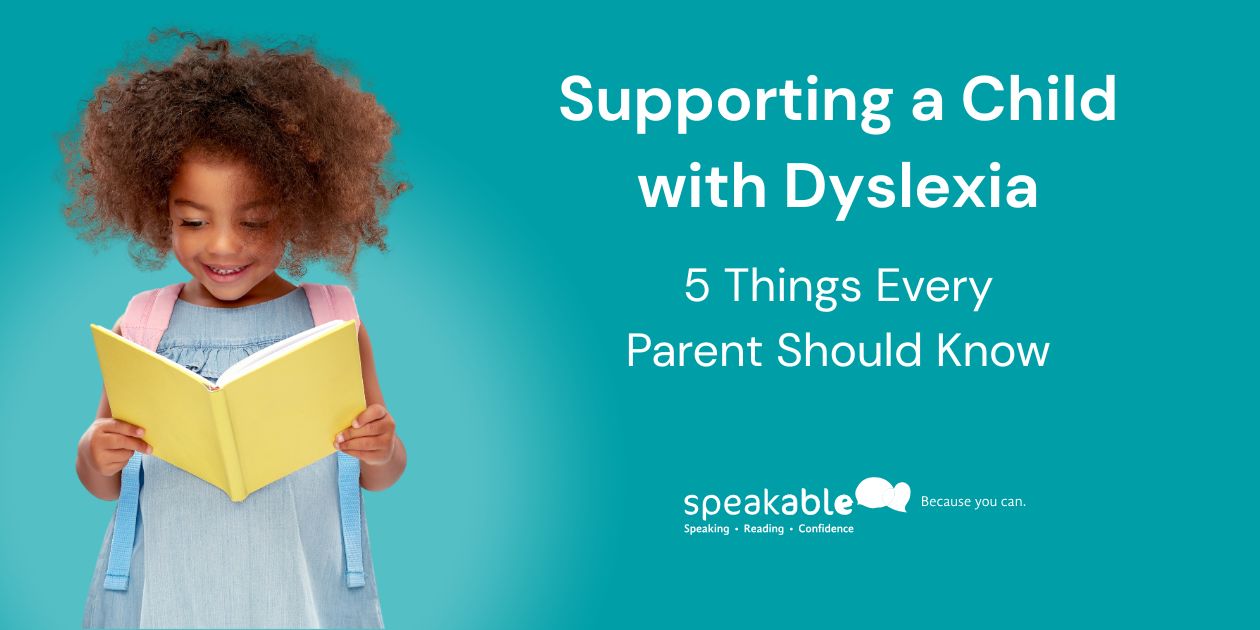Dyslexia is more than just a reading difficulty, it’s a different way of processing language that affects how children read, spell, and sometimes speak. But with the right support, children with dyslexia can thrive both academically and emotionally.
Here are five important things every parent should know when supporting a child with dyslexia:
1. You Are Your Child’s Biggest Advocate
Helping your child means working closely with teachers and schools. When everyone works together, your child is more likely to get the support they need. Below are some helpful accommodations often used with children who have dyslexia:
– Extra time during assessments
– Access to audiobooks or speech-to-text tools
– Explicit phonics instruction
– Modified homework expectations
Try to build a supportive relationship with your child’s teachers and ask about learning support plans or classroom accommodations.
2. Confidence Matters More Than You Think
Children with dyslexia often internalize feelings of failure or frustration. Supporting their emotional well-being is just as critical as their reading support.
Try:
- Praising effort and progress, not perfection
- Encouraging talents in areas like drawing, music, building, or memory
- Helping them understand that having dyslexia doesn’t mean they aren’t smart
When children feel confident in themselves, they’re more willing to keep trying — even when things are hard.
3. Early Identification Makes a Big Difference
Finding out early if your child has dyslexia can really help. The sooner they get support, the easier learning can become. Look out for signs like:
– Trouble with rhyming words
– Difficulty hearing or remembering letter sounds
– Avoiding reading or saying it’s too hard
– Spelling that doesn’t improve over time
If you’re concerned, speak with a teacher, doctor, or speech pathologist. They can guide you on what steps to take next.
4. There Are Tools and Tech That Help
Technology can support children with dyslexia by making reading and writing tasks easier. It can help reduce stress and build confidence at school and home.
– Text-to-speech programs like NaturalReader or Voice Dream Reader
– Audiobooks from Bookshare or Audible Kids
– Word prediction tools like Co:Writer or Ghotit
– Reading aids like colour overlays or rulers
– Dictation tools like Google Voice Typing or Otter.ai
These tools don’t replace teaching, but they help children join in and keep learning while they build their skills.
5. You Don’t Have to Do This Alone
It’s normal to feel unsure or overwhelmed at times. But remember, you don’t need to navigate this alone.
You can seek support from:
- Speech pathologists and educational psychologists
- Literacy specialists or tutors trained in dyslexia
- Dyslexia associations and community groups
- Learning support teams at school
Need Help? Speakable is Here for You
At Speakable, we understand how unique every child is — and how important the right support can be. Our team can help assess language and literacy skills, provide tailored strategies, and work alongside families and schools to support your child’s success.
Contact us today to find out how we can help your child with dyslexia thrive.




